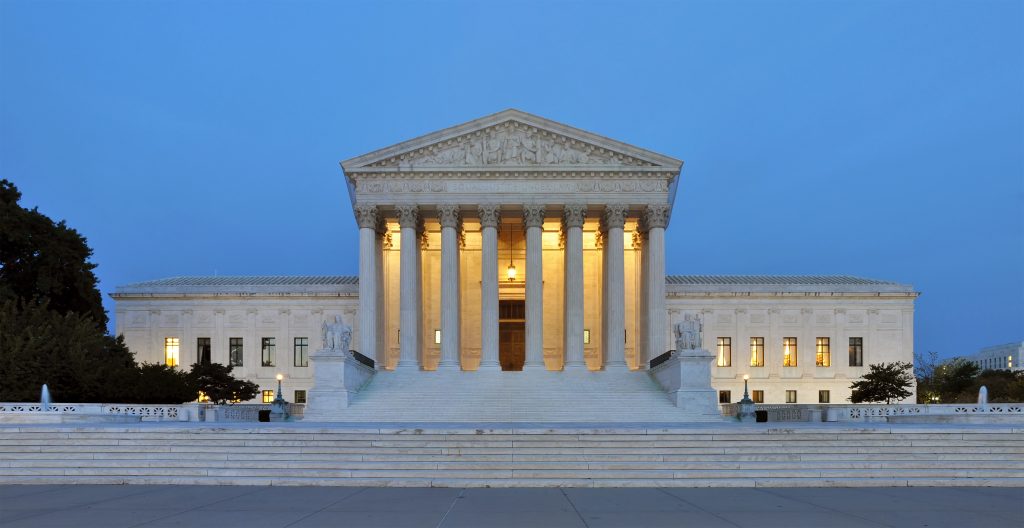The Metro: Barbara McQuade offers SCOTUS reflections as annual session comes to a close
Sydney Waelchli July 2, 2024The former U.S. attorney joined the show to analyze some of the Supreme Court’s most impactful decisions and recap the year’s term.

U.S. Supreme Court building
The U.S. Supreme Court wrapped up its term Monday with a slew of important decisions. The cases include a decision declaring that former presidents — like Donald Trump — have broad immunity from prosecution; a decision upholding access to the abortion pill mifepristone; and another allowing local governments to fine or jail the homeless for sleeping outside.
University of Michigan law professor and former U.S. Attorney Barbara McQuade joined The Metro on Tuesday to analyze some of the Supreme Court’s most impactful decisions and recap the year’s term.
Subscribe to The Metro on Apple Podcasts, Spotify, NPR.org or wherever you get your podcasts.
In relation to the presidential immunity decision — which allows presidents presumptive immunity from prosecution for all “official acts” and no immunity for “unofficial acts” — McQuade says there will likely be some disagreement as to where the official line ends and where the unofficial line begins.
“I imagine we will see a great deal of litigation to decide that question,” McQuade said.
Speaking on the Supreme Court’s decision to overturn a ruling from a California-based appeals court that found outdoor sleeping bans amount to cruel and unusual punishment for homeless populations, McQuade called it “troubling.”
“I think this is a real crossroads for a country about how we treat homeless people,” she said. “You know, is it cruel and unusual punishment, to punish people for doing something over which they really have no control?”
Over the past term the Supreme Court also ended the 40-year-old precedent of “Chevron deference,” which provided the executive branch with government experts to interpret ambiguous laws. McQuade is concerned about the amount of power the courts are using, based on these recent rulings, and the effect it may have on democracy.
“I think that one concern I have here is that the court is engaging in overreach. You know, I’ve written this book on disinformation. And one of the concerns I addressed there is the harm it has on democracy, an important feature of democracy is forbearance,” McQuade said. “That is, just because you can use power doesn’t mean you should use power.”
Use the media player above to hear the full interview with McQuade.
More headlines from The Metro on July 2, 2024:
-
- Father Tim McCabe, president and CEO of the Pope Francis Center, joined The Metro to share his perspective and opinion on the Supreme Court ruling on outdoor sleeping bans.
- Local nonprofit 313Reads received a grant allowing for the dispersal of 60,000 books in Detroit. The organization will distribute the books to over 75 local groups to promote reading at home with kids and families. 313Reads Executive Director Dr. Leah Van Belle joined The Metro to discuss the book giveaway.
- The Black Art Library has recently been given a permanent location at The Shepherd, East Village’s new cultural art center. The project’s founder, Asmaa Walton, joined the show to discuss the new partnership.
Listen to The Metro weekdays from 11 a.m. to noon ET on 101.9 FM and streaming on-demand.
Trusted, accurate, up-to-date.
WDET strives to make our journalism accessible to everyone. As a public media institution, we maintain our journalistic integrity through independent support from readers like you. If you value WDET as your source of news, music and conversation, please make a gift today. Donate today »
